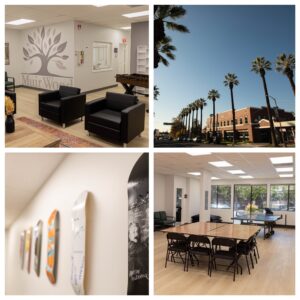Teens in recovery need a different therapy options than adults. Therapy for adolescents should focus on the issues that young people face and teach them coping skills that are appropriate for their lives. Character development and esteem building are at the heart of a successful program for boys who want to become strong, self-reliant men. As you investigate treatment centers for your teenage son, look for a program that includes these key components:
One-to-One Therapy for Teens
Individual therapy is the core of teenage addiction treatment. In one-to-one counseling sessions, teens have the opportunity to talk about their substance abuse with a compassionate, nonjudgmental professional. Therapists who specialize in adolescent addiction treatment center these sessions on topics that are relevant to teens, such as:
- Dealing with peer pressure
- Coping with family conflict
- How to handle dating and sexuality
- How to recover from childhood trauma
- Planning for the future
Therapy sessions start early in the rehab process — as early as the detox phase, in many cases — so young clients can begin to build trust in their therapists. The sooner your teenager begins to talk about the issues that trouble him, the sooner he can begin the true work of recovery.
A variety of therapeutic models are commonly used in counseling troubled teenagers. Cognitive behavioral therapy (CBT), one of the most successful and widely used treatment options, helps adolescent boys identify their triggers and overcome self-defeating thoughts and behaviors. Motivational interviewing (MI) encourages teens to work with the therapist in finding strong internal motives to recover from addiction and lead fulfilling, purposeful lives. According to Alcoholism Treatment Quarterly, motivational interviewing is highly effective at helping adolescents in recovery because of its collaborative, supportive, non-confrontational approach.
Peer Group Therapy
Peer pressure is one of the strongest influences that adolescents face in recovery. Teenagers in rehab often worry about how they’ll be treated by their peers when they attempt to start a healthy new life back at home. For teenage boys, peer group therapy provides the reinforcement and encouragement they need to feel accepted in recovery. In group sessions, teens can talk about their experiences, share coping strategies, and find new hope for the future.
Once teenagers have graduated from rehab, they can continue to evolve in recovery with the support of peer & community groups and fellowships. The therapists on your son’s treatment team will guide him toward 12-step programs and other fellowship groups that can help him maintain his abstinence after leaving the rehab center.
Family Counseling
Without a strong family to fall back on, a teenager is likely to return to his destructive behaviors after he finishes treatment. Addiction therapy should be offered not only to the teenager with the substance use disorder but to parents and other members of the household. Counseling sessions usually take place individually, so that each family member can discuss his or her personal concerns in private, and then together as a group.
The University of Massachusetts at Boston states that addiction is an organizing principle in families where one or more members abuse alcohol or drugs. In other words, addiction influences the way family members interact, perceive themselves, and think about each other. Family counseling helps the members of your household rebuild their relationships on a stronger, more secure basis, so you can all lead happier, more fulfilling lives.
Experiential Therapy
Adolescent boys crave excitement and adventure. Drugs, alcohol, or process addictions, like compulsive gambling, video gaming, and pornography addiction, often provide the euphoric high these teens are looking for. Experiential therapy teaches teenagers that life itself holds an abundance of drug-free excitement. Trek programs allow teens to discover their own gifts in an energizing natural environment. Backpacking, horseback riding, and kayaking teach teenagers to rely on their own inner resources and to trust others for help and support.
At Muir Wood, we offer a full range of therapy options at our gender-specific treatment center. From individual counseling sessions to group counseling, community fellowships, and family therapy, our goal is to help troubled teens make the transition into adulthood successfully. Our experiential therapies include weekend adventure trips at nearby Muir Woods, Point Reyes, and Sonoma, where teens can learn to appreciate the natural resources in this stunning area.
For an at-risk teenager, addiction therapy can literally be a lifesaver. That’s why we place a strong emphasis on offering innovative therapeutic treatment by the leading adolescent addiction specialists in the Bay Area. If your son is at risk of falling into the trap of addiction, call our intake counselors or download our application packet today.








